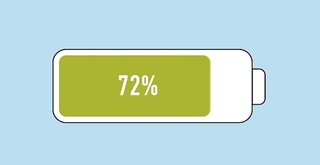Tackling your to-do list
Our lives are made up of lots of different activities, some of which we have to do and others we choose to do for enjoyment. But if we're feeling low, we may lack the motivation.
At first, avoiding tasks and activities might feel like a relief but, over time, this can make a low mood harder to shift.
The strategies in these 4 steps can help you take on your to-do list, build more structure into your life and find a better balance.
Video: Tackling your to-do list
The tips and strategies in this video can be a good way to start tackling tasks you may have been putting off.
Steps and strategies to help you tackle your to-do list

1. Figure out your avoidance areas
It may not always be obvious which tasks or activities we avoid.
To work out which areas to focus on, make a note of anything you delay starting or avoid entirely over the course of a week, as well as anything you used to do but have stopped.
Once you have your list, look through it and see if you can spot any common themes.
For example, maybe you tend to put off housework or chores. Or maybe you're fine with necessary and routine tasks but turn down opportunities to do something fun.

2. Colour-code your week
It's really important to have a balance betwen routine, necessary and enjoyable activites, but we might not always notice how much time we spend on each type.
Try planning your week in advance using 3 different colours – 1 each for:
- routine – things you do on a regular basis, like cooking, cleaning and doing the washing
- necessary tasks – things you have to do to avoid negative consequences, like paying bills
- enjoyable activities – things you do for fun, like hobbies or socialising
Try to make sure you have enough of all 3 colours on your weekly plan.
To help with this, look back at your avoidance areas and see where you can incorporate more of these.

3. Tackle your avoidance areas
Your reasons for avoiding certain tasks can depend on the type of activity it is.
For help in putting your weekly plan into action, try the advice that best suits your situation.

4. Balance is key
Colour-coding your week can help you make sure you always have enjoyable activities planned, without neglecting your routine and necessary ones.
When you look at your week, check there's enough of the enjoyable colour on there – we all need balance in our lives.
More self-help CBT techniques you can try

Staying on top of things
Making caring for your mental wellbeing part of your routine can help you protect your mental health and manage setbacks more easily. See how to combine everything you have learnt into a personal plan for staying well.
Find more ideas to try in self-help CBT techniques




